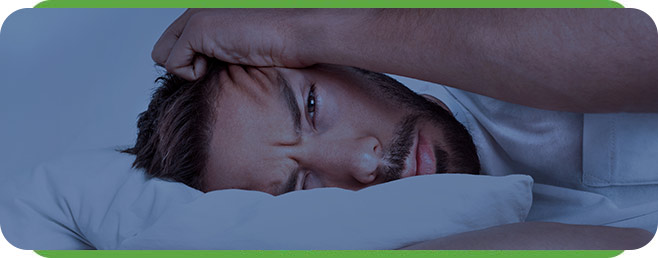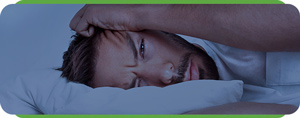Does a Sleep Study Show Anxiety?
How much and how well we sleep significantly impacts every aspect of our waking lives, specifically helping to restore proper brain function and reducing symptoms of underlying disorders including mental disorders such as anxiety. By addressing an existing sleep disorder, patients will be able to wake up feeling refreshed and with symptoms that are typically worsened due to their lack of good-quality sleep substantially alleviated. Contact Koala® Center For Sleep & TMJ Disorders for more information or book an appointment online. We have convenient locations across the U.S. in Bloomington IL, Peoria/Dunlap IL, El Paso TX, and Wausau WI.




Table of Contents:
Are sleep apnea and anxiety related?
Does a sleep study show anxiety?
How can I cure my sleep anxiety?
While there is no research showing that sleep apnea or anxiety leads to the causation of one another, it is incredibly common for those with sleep apnea to also have some type of mental disorder, often anxiety, and for those with anxiety to also suffer from a sleep disorder, often sleep apnea. It can also be proven that feelings of anxiety tend to lead to a worsened quality of sleep, as the anxiety can cause patients to suffer from insomnia, taking longer to fall asleep and becoming more easily awoken throughout the night. Suffering from poor quality sleep has been shown to have a negative effect on anxiety, often worsening the symptoms through increased daytime tiredness and sleep deprivation. Both sleep apnea and anxiety do have a common cause or trigger; stress. So, while they are not directly related, suffering from sleep apnea and anxiety has quite a bit of cross-over, making it not uncommon for the two conditions to come together.
There are quite a few studies that have been completed that show a relationship between sleep disorders and anxiety, with it being very common that suffering from one makes it more likely that the person will also suffer from the other. The relationship between the two conditions is bidirectional, meaning that if one condition worsens, so will the other. Increased levels of anxiety will typically cause increased sleep disruptions or disturbances, and poor-quality sleep will lead to increased feelings of anxiety. Studies have provided information confirming that people with anxiety reported above average daytime sleepiness, increased symptoms of insomnia, poorer sleep, and were at an increased risk of developing obstructive sleep apnea.
Sleep studies have also shown that treating sleep apnea has led to decreased symptoms of anxiety in patients, as being able to get enough high-quality, uninterrupted sleep improves overall brain functioning and has proven to decrease the prevalence of mental disorders in general as the brain is able to function properly and think logically throughout the day. This means that if you suffer from anxiety, it may be worth assessing your sleeping habits to determine if you have a sleep disorder, as treating the sleep disorder will likely provide substantial support for the anxiety disorder.
Sleep anxiety occurs when someone has general feelings of anxiety around sleeping, often worrying that they will not be able to get enough sleep or a good quality sleep, resulting in poorer functioning throughout the following day. Sleep anxiety often leads to increased difficulty falling asleep as the anxiety makes it difficult to relax enough to fall asleep in a reasonable amount of time. Sleep anxiety can affect everyone, children, adolescents, and adults, but is more commonly seen in those who also suffer from a sleeping disorder such as insomnia, restless leg syndrome, and sleep apnea. Sleeping disorders have shown to contribute negatively to sleep anxiety, with those who already have troubles falling asleep, staying asleep, and having good quality sleep, often having increased feelings of anxiety while trying to fall asleep as they worry about how well they will sleep. One of the most effective ways to treat sleep anxiety is to treat any underlying conditions that may be frequently leading to poor sleep, such as treating a prevalent sleep disorder. Sleep apnea is a very common sleep disorder that has shown to lead to sleep anxiety, but comes with several effective treatment options, allowing patients to fall asleep much faster, and to stay asleep while finally getting good quality sleep regularly. This alone will significantly reduce the patients’ feelings of anxiety around sleeping as they will know that they can reliably get a good night’s sleep moving forward.

Additional Services You May Need
▸ KoalaKIDZzz®
▸ Sleep Apnea
▸ Snoring
▸ TMJ Disorder
▸ Fatigue
▸ Sleep Disorders
▸ Weight Loss
▸ CPAP Alternative
▸ Oral Appliances




